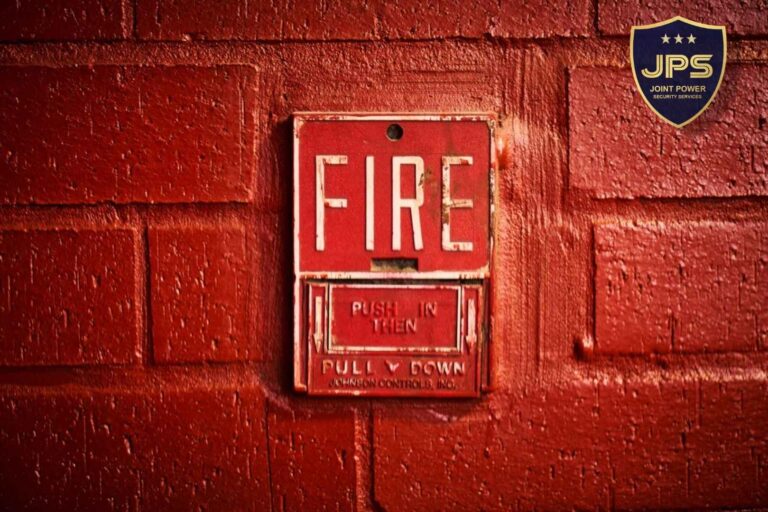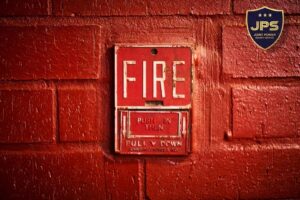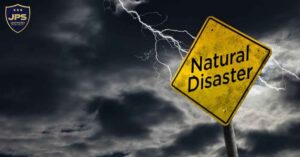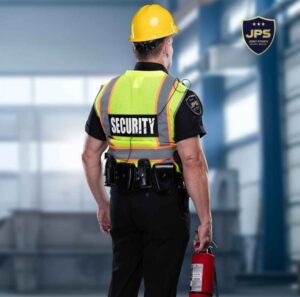
Choosing the right fire watch service provider in California is crucial for ensuring the safety of your property and compliance with fire codes. Here’s a comprehensive guide to help you make an informed decision:
Understand Your Specific Needs
- Why do you need fire watch services?
Is it due to a malfunctioning fire suppression system, hot work being performed, a special event, or other specific circumstances? Understanding the reason will help you find a provider with relevant expertise.
- What type of property needs monitoring?
The requirements for a construction site, healthcare facility, or commercial building can differ.
- What are the local fire marshal requirements
Regulations can vary by city and county in California. Ensure the provider is familiar with and adheres to these local requirements (e.g., patrol frequency, logbook maintenance). Some cities & counties, like Los Angeles, might have specific requirements like patrols every 30 minutes.
Some cities patrol requirement is every 1hr minimum.
Verify Licensing and Credentials
- Check for a valid California Bureau of Security and Investigative Services (BSIS) license
Any company providing security services, including fire watch, must be licensed in California.
- Ensure guards are BSIS certified.
Individual fire watch personnel should have the necessary certifications and training to perform their duties effectively.
- Confirm insurance and bonding
The provider should have adequate insurance coverage (general liability, worker’s compensation) and be bonded to protect you from potential liabilities.
Evaluate Experience and Expertise
Look for a provider with specific experience in fire watch services. Don’t assume all security companies are equally qualified for fire watch. Inquire about their training program for fire watch personnel. Guards should be trained in:
- Identifying potential fire hazards.
- Using fire extinguishers and other fire suppression equipment.
- Emergency response procedures and communication (including contacting the fire department via 9-1-1).
- Facility evacuation plans.
- Maintaining detailed logs of their patrols and any incidents.
- Ask for references from previous clients, particularly those in similar industries or with similar fire watch needs.
Assess Reliability and Responsiveness
- 24/7 Availability: Fire watch services often need to be available around the clock. Ensure the provider offers continuous coverage.
- Rapid Response Times: In emergency situations, a quick response is critical. Inquire about their dispatch procedures and estimated response times. Some providers even advertise rapid dispatch and on-site arrival within hours.
- Communication: The provider should have clear communication protocols, including how fire watch personnel will communicate with your staff and the fire department. Two-way radios are often used for communication among fire watch personnel and a central point of contact.
Consider Customization and Flexibility
- Tailored Solutions: A good provider will assess your specific risks and needs to develop a customized fire watch plan, rather than offering a one-size-fits-all approach.
- Scalability: Can the provider adjust the level of service if your needs change?
Review Technology and Equipment
- Communication Tools: Ensure guards are equipped with reliable communication devices.
- Reporting and Logging: Understand their methods for documenting patrols and incidents. Electronic reporting can offer real-time updates and better accountability.
- Availability of Fire Safety Equipment: Fire watch personnel should have immediate access to fire extinguishers and be trained in their use.
Evaluate Cost and Value
- Obtain quotes from multiple providers to compare pricing.
- Don’t solely base your decision on the lowest price. Consider the provider’s experience, qualifications, and the quality of their services. Value for money is more important than just cost.
Check for Compliance with California Fire Code
Ensure the provider’s practices align with the California Fire Code requirements for fire watch, including patrol frequencies (which can be every 15, 30, or 60 minutes depending on the occupancy type and local regulations), communication methods, and logging procedures.
Key Considerations To Choose Joint Power Security
- Hot Work
When fire watch service is required for hot work (welding, cutting, etc.), we ensure our fire watch guards are specifically trained in these requirements, including remaining on site during and for at least 30 minutes after the hot work is completed.
- Impaired Fire Protection Systems
When fire alarm or suppression systems are out of service for more than four hours in a 24-hour period, immediate notification to the fire authority and implementation of a fire watch are typically required.
- Logbooks
JPS Fire watch guards always maintain detailed fire watch logs of their patrols, including times, areas checked, and any incidents. These logs are available for inspection by the fire department.
By carefully considering these factors, you can select Joint Power Security as a reliable fire watch service provider in California that meets your specific needs, to ensure the safety of your property and occupants, and helps you comply with all relevant fire safety regulations.
We cover all cities in California.
Joint Power Security Provides The Most Reliable Fire Watch Guards, And Security Guards To All Of California. We are also world famous for our IT Security & Security Consultant Services.




